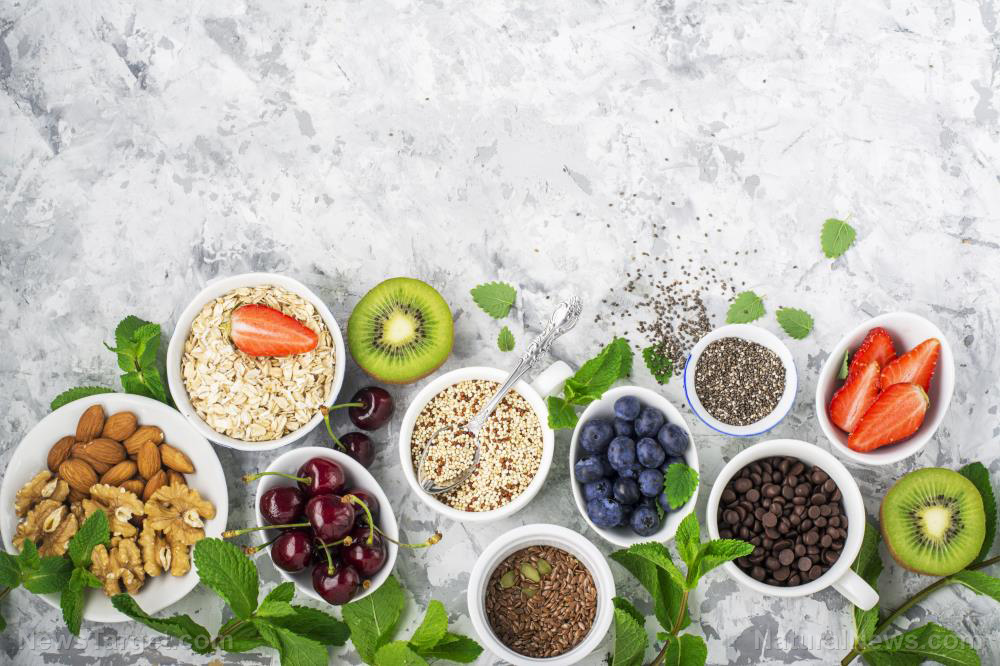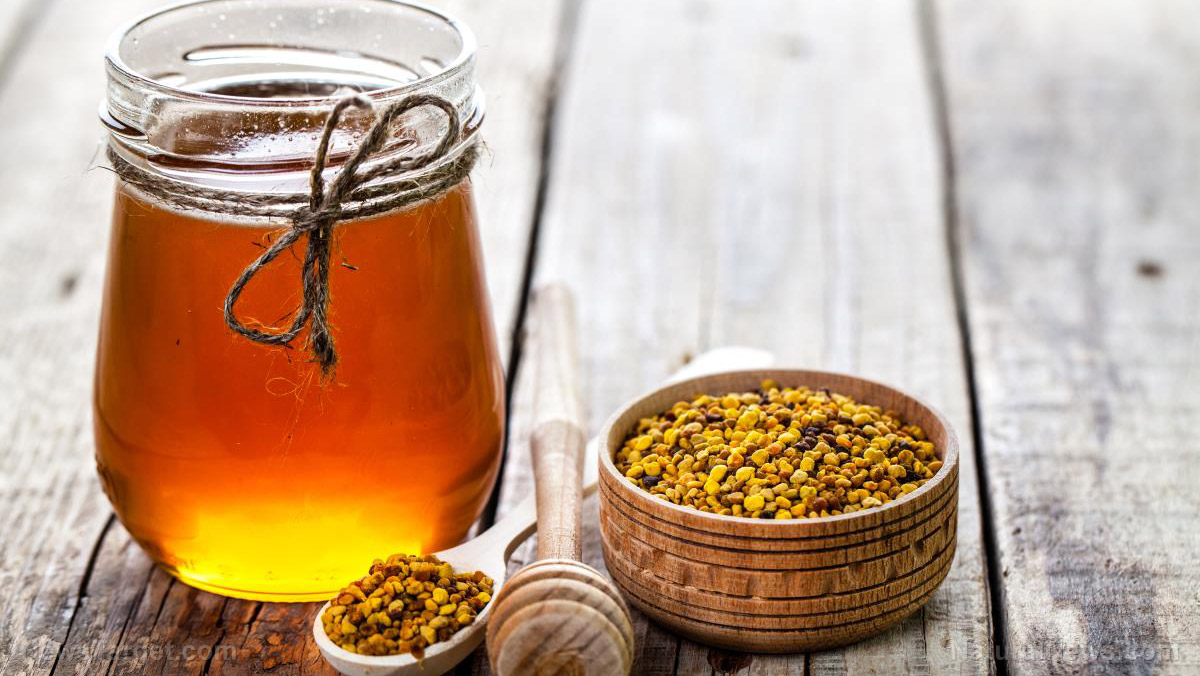Boost brain health and relieve nausea and stomach issues with ginger, a versatile superfood
05/05/2022 / By Zoey Sky

Ginger (Zingiber officinale) is a pungent, flavorful spice that’s used in various dishes. But this versatile herb is more than just an ingredient for soups and stews.
A staple herb in Ayurvedic and Traditional Chinese Medicine, ginger has been used for centuries to relieve common health complaints like joint pain, nausea and other ailments.
Even researchers are taking a closer look at the many beneficial effects of ginger. In a 2020 review published in the journal Nutrients, researchers reported that some compounds in ginger have anti-inflammatory, antioxidant and therapeutic properties.
Detailed below are some of the ways soothing, refreshing ginger supports your overall health and well-being.
Ginger helps relieve nausea and promotes better digestive health
Nothing spoils a road trip or an ocean cruise faster than being carsick or seasick.
Fortunately, researchers have found that ginger can help relieve motion sickness more effectively than conventional anti-nausea drugs. Additionally, ginger has no toxic side effects, unlike over-the-counter (OTC) remedies.
Researchers also believe that ginger can help quicken the speed at which the stomach empties. This helps decrease issues like nausea, stomach discomfort and bloating.
According to data from several studies, ginger may also help with nausea caused by chemotherapy, a side effect that is common in at least 75 percent of all chemo patients. Data also suggests that ginger may help reduce nausea following surgical procedures. (Related: 7 Reasons to eat more ginger.)
According to research, 80 percent of pregnant women report experiencing morning sickness, especially in the first and second trimesters. A review involving more than 1,200 pregnant volunteers and published in Nutrition Journal suggests that dosages of one gram to one-and-a-half grams of ginger significantly reduced nausea.
But you have to avoid ginger if you are pregnant and have experienced vaginal bleeding and or clotting disorders, are close to giving birth or have had miscarriages. Check with your obstetrician before using ginger for morning sickness.
Ginger helps soothe post-workout body pain
Gingerols and shogaols are the main bioactive components in ginger, and they are “key players” in ginger’s anti-inflammatory properties. Both compounds have been shown to inhibit pro-inflammatory substances in the body via the cyclooxygenase (COX) and lipoxygenase (LOX) pathways.
Compounds in ginger also interfere with the action of xanthine oxidase, an enzyme linked to the creation of harmful free radicals. This means ginger can promote the health of body systems, like your circulatory and musculoskeletal systems.
Researchers also suggested that ginger may help soothe occasional soreness caused by overwork or strenuous exercise. In one controlled study, participants “performed eccentric actions of the elbow flexors to induce pain and inflammation.” According to the results, daily supplementation with two grams of ginger resulted in “moderate-to-large” reductions in muscle pain, suggesting that ginger can be used for natural muscle pain relief.
If you’re a frequent gym-goer, try to relieve muscle pain with a cup of ginger tea. You can also try using ginger to soothe menstrual cramps.
Ginger helps boost brain health
Studies have also found that ginger has neuroprotective properties that may help promote mental clarity and support the health of brain cells.
If you’re worried about impaired concentration, sluggish thinking and mental fatigue or a state often called “brain fog,” ginger can help boost your brain health.
Studies suggest that ginger helps restore clear thinking because it inhibits the production of acetylcholinesterase, an enzyme that breaks down acetylcholine. This neurotransmitter or chemical messenger is important for learning and memory.
Ginger helps promote brain health by protecting glial cells, which help eliminate inflammatory debris and toxins from the brain.
According to one clinical study, ginger helps enhance attention and cognitive processing in middle-aged women.
In an animal study published in the Journal of Nutritional Biochemistry, researchers reported that dried ginger improved novel objection recognition and enhanced memory.
These studies suggest that if you’re having trouble concentrating and your attention is flagging, you can trigger a boost in focus by drinking a soothing cup of ginger tea.
How to use ginger root
Fresh ginger root, which is actually the rhizome or underground stem of the ginger plant, can be washed and peeled then chopped, sliced or grated for use in various dishes or beverages.
Start with something simple like ginger tea. To make ginger tea, wash, peel and thinly slice an inch or two of fresh ginger root. Steep the ginger in hot water for 10 minutes, then strain before serving. Add a bit of honey to naturally sweeten the tea. Take small, slow sips.
If you are feeling under the weather, natural healers recommend drinking up to four cups of ginger tea daily.
Ginger is considered generally safe for consumption. However, consuming excessive amounts of ginger could cause heartburn in some individuals.
Here are some more dishes that are made with fresh ginger:
- Apple crumble with ginger
- Broccoli ginger stir fry
- Carrot ginger soup
- Fried rice with ginger
- Ginger lemonade
- Ginger lime hummus
- Ginger salad dressing
- Sesame ginger dressing
Alternatively, you can take dried, powdered ginger in capsule form. It’s best to take 1,000 mg to 2,000 mg of dried ginger a day, taken in divided doses.
Take ginger capsules or drink ginger tea to boost your brain health or relieve nausea and minor digestive issues.
Visit FoodIsMedicine.com for more information about ginger and other medicinal foods.
Watch the video below to know more about the seven amazing health benefits of ginger.
This video is from the Natural News channel on Brighteon.com.
More related stories:
Why you should drink more ginger turmeric tea: Facts, benefits.
Bottoms up! The 5 health benefits of ginger water, a natural anti-inflammatory drink.
Here’s what research shows about the mental health benefits of ginger.
Ginger found to be effective against many different types of cancer.
Here’s an easy guide to growing your own ginger at home.
Sources include:
Submit a correction >>
Tagged Under:
This article may contain statements that reflect the opinion of the author
RECENT NEWS & ARTICLES
COPYRIGHT © 2017 SUPER FOODS NEWS





















